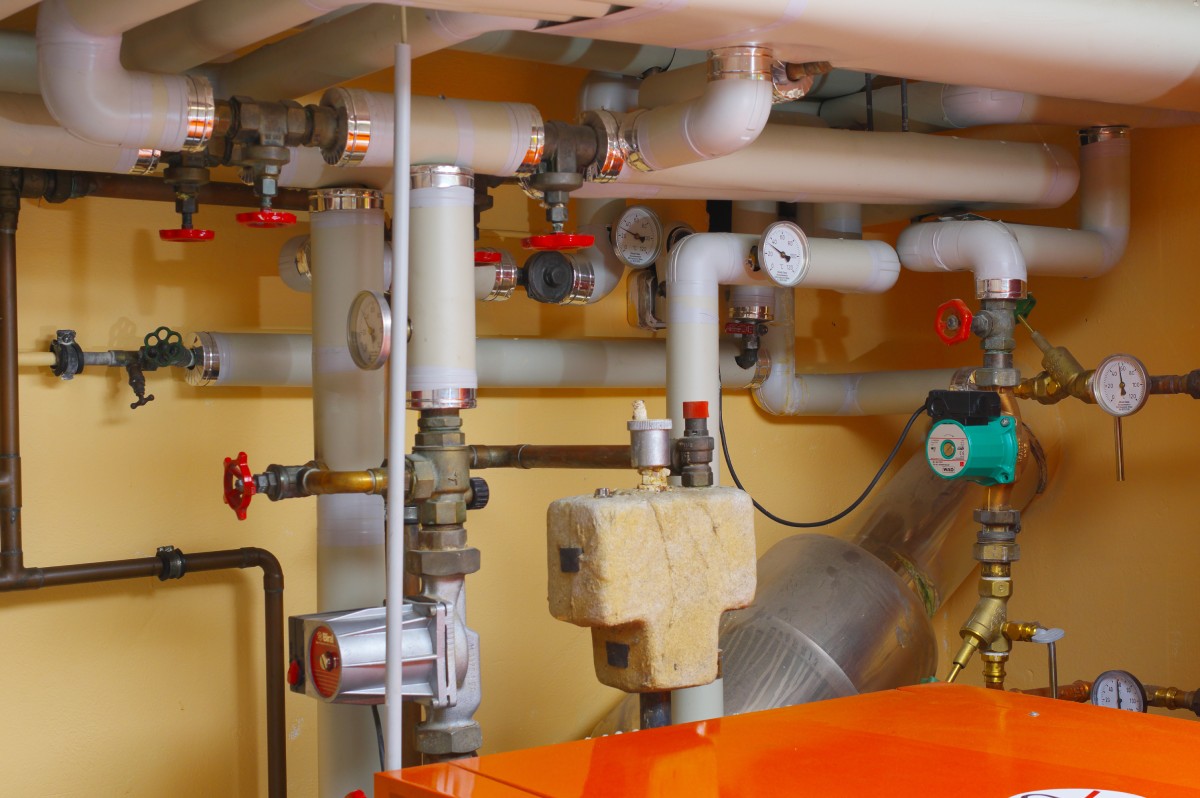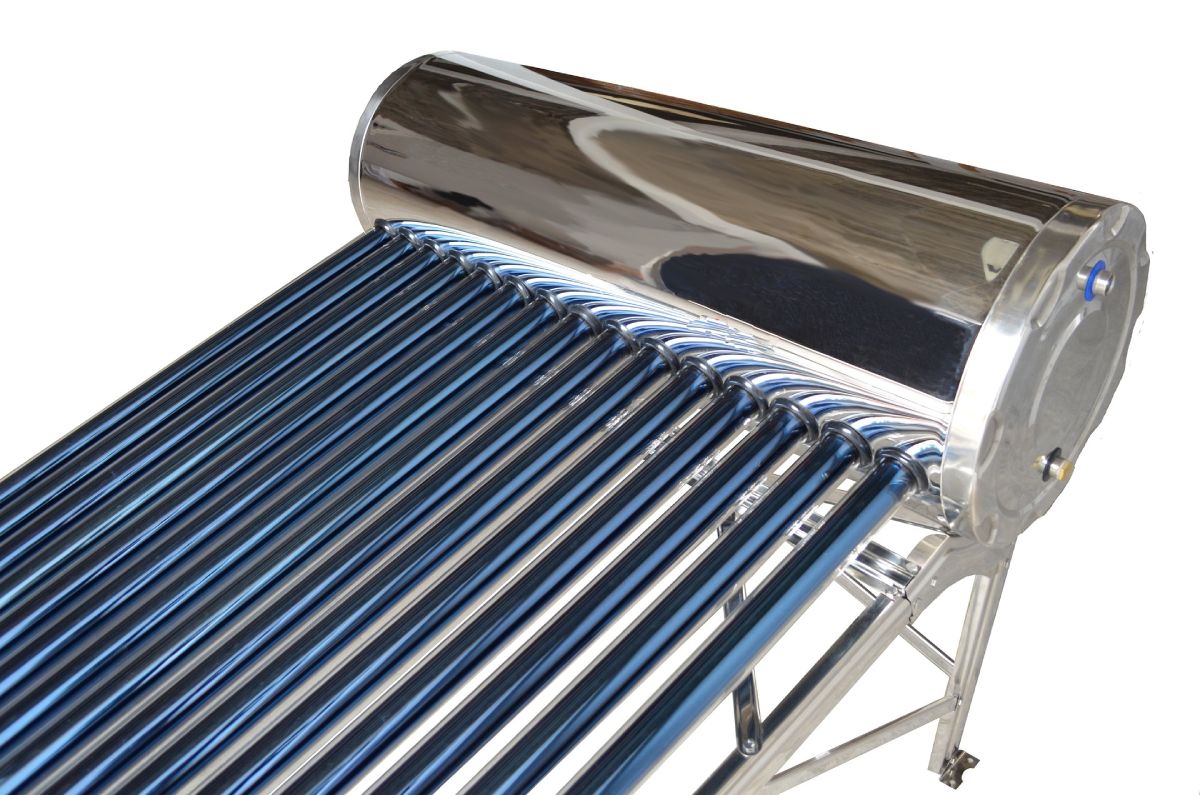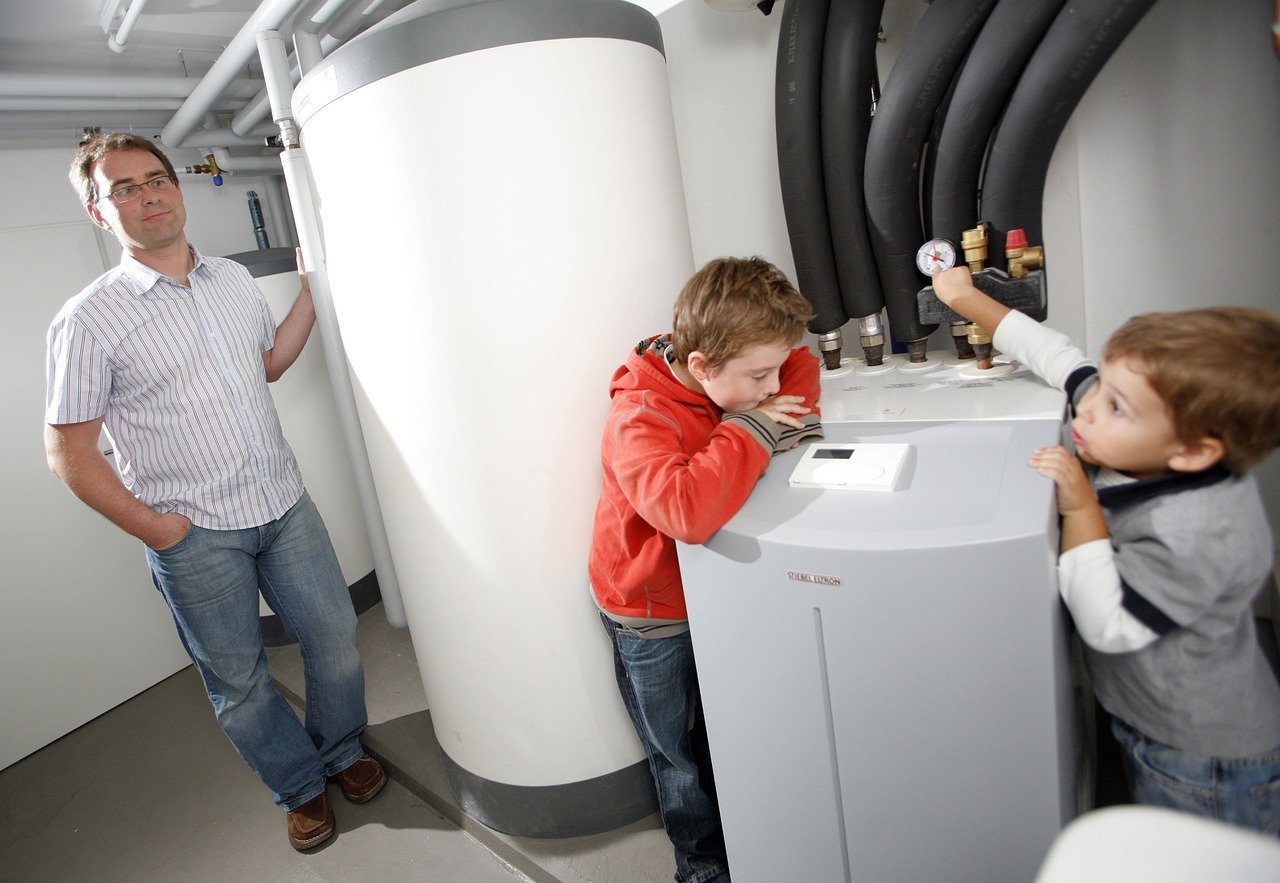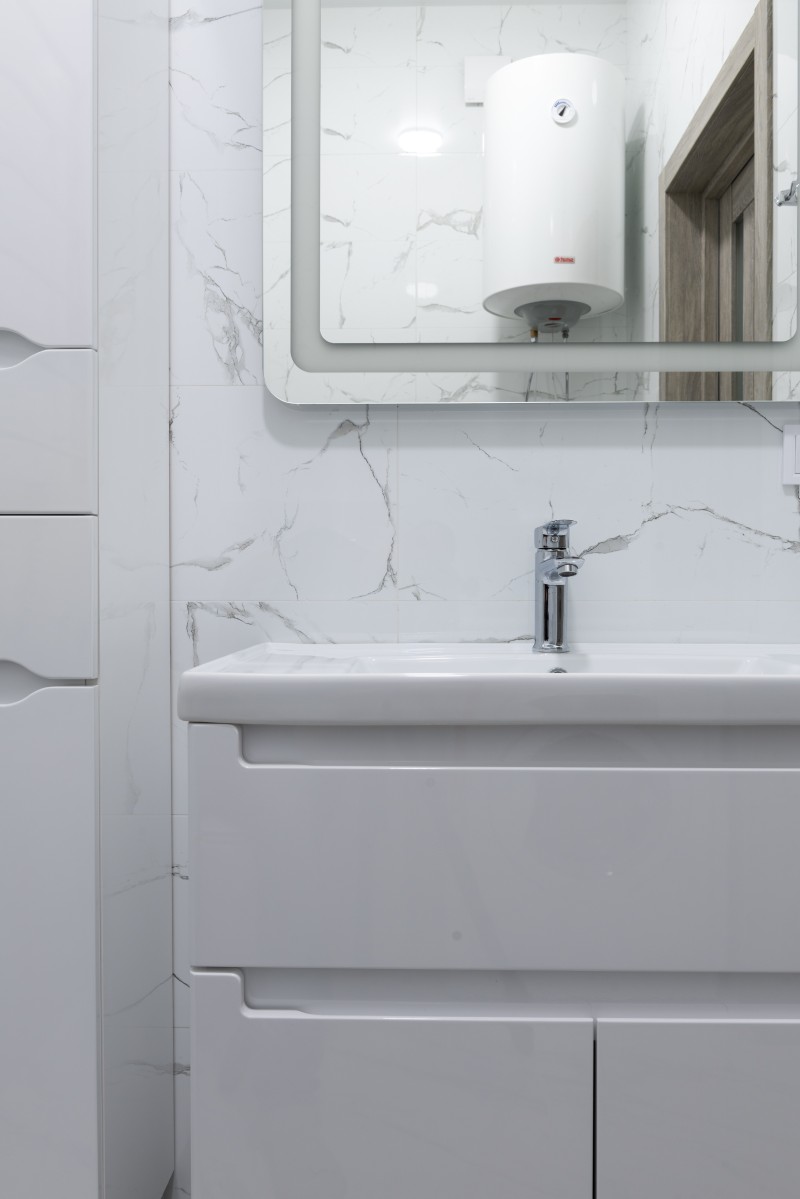Introduction
In today’s world, energy-efficient and sustainable solutions are more than a trend. They are a necessity, crucial for the health of our planet and our wallets. One area that often gets overlooked, yet offers tremendous potential for sustainability and energy savings, is water heating.
Understanding Water Heating Needs
Whether it’s for a hot shower, cleaning dishes, or running a business, water heating is a vital part of our everyday lives. For homes and businesses alike, the demand for hot water is a constant, leading to considerable energy use. From small residences to large industrial complexes, water heaters provide comfort, hygiene, and operational functionality that we often take for granted.
Current Challenges with Traditional Water Heaters
Traditional water heaters, whether they are tank or tankless models, primarily rely on gas or electricity for heating. These sources are not only finite but also contribute significantly to carbon emissions. Moreover, inefficiencies in these types of water heaters often lead to wasted energy. For example, a conventional storage tank heater is constantly working to keep the water hot, leading to “standby loss.”
Energy consumption for water heating can make up a significant part of a home or business’s energy costs. According to the U.S. Department of Energy, water heating accounts for about 18% of a home’s energy use. For businesses, especially those in the hospitality or industrial sectors, this percentage can be even higher.
These challenges highlight the need for sustainable water heating solutions that not only meet our hot water needs but do so in a way that is more energy-efficient and environmentally friendly.
Brief Overview of the Article
In this blog post, we’ll delve into the world of sustainable water heating solutions. We’ll explore various technologies, from solar thermal systems to heat pump water heaters and on-demand technology. We’ll look at the benefits and challenges of these systems, and we’ll explore how making the switch can not only save you money but also make a significant contribution to reducing carbon emissions. Whether you’re a homeowner looking to make your home more sustainable or a business owner seeking energy and cost-efficient solutions, there’s something for everyone. Let’s explore the future of sustainable water heating together.
Importance of Sustainable Water Heating
As the conversation around climate change intensifies, all aspects of our energy use come under scrutiny. Sustainable water heating solutions not only hold immense potential for reducing carbon emissions but also can bring significant cost savings and contribute to energy independence. In this section, we delve deeper into why these solutions are so important.

Environmental Impact of Traditional Water Heating
Traditional water heaters, particularly those that use fossil fuels like natural gas, propane, or fuel oil, contribute significantly to greenhouse gas emissions. Every time we heat water using these resources, carbon dioxide — a primary culprit of global warming — is released into the atmosphere.
Electric water heaters may seem like a cleaner option, but it’s essential to remember that the electricity used likely comes from power plants that burn fossil fuels. Therefore, the carbon footprint of electric water heaters is indirectly linked to these carbon-intensive energy sources.
On a large scale, these emissions can have a substantial impact. For instance, if every household and business moved away from traditional water heating, the reduction in carbon emissions would be monumental.
Potential Cost Savings with Sustainable Solutions
Switching to sustainable water heating solutions can also bring about significant cost savings. For instance, while the initial cost of a solar water heater or a heat pump water heater might be higher than a traditional model, the savings over time can more than offset this.
These systems use less energy overall, leading to lower utility bills. In addition, many sustainable water heaters have longer lifespans than their traditional counterparts, leading to savings in replacement and maintenance costs.
Contribution to Energy Independence
Sustainable water heating solutions also play a crucial role in energy independence. By using renewable resources such as sunlight or ambient heat from the environment, these systems reduce dependence on fossil fuels, and by extension, the impact of volatile fuel prices.
Moreover, decentralized water heating systems, such as solar thermal setups, can contribute to a more resilient energy grid by reducing the load on power plants and decreasing the risk of blackouts.
In conclusion, the shift toward sustainable water heating is more than just an eco-friendly move. It’s a sensible choice that benefits the planet, reduces energy costs, and promotes energy independence. As technology evolves and becomes even more efficient, these benefits are likely to grow, making sustainable water heating an important consideration for any home or business.
Types of Sustainable Water Heating Solutions
There’s no one-size-fits-all solution when it comes to sustainable water heating. Depending on the location, budget, climate, and specific needs of a home or business, different types of water heaters may be more suitable. This section will introduce three key types of sustainable water heating solutions: solar water heaters, heat pump water heaters, and tankless water heaters.

Solar Water Heaters
Harnessing the sun’s power to heat water is a clear way to cut down on carbon emissions. Solar water heaters use solar panels, often installed on the roof, to capture energy from the sun. This energy is then used to heat water stored in a tank.
There are two primary types of solar water heaters: passive systems, which rely on gravity and natural circulation of heat, and active systems, which use pumps and controllers to circulate water. While the initial installation costs can be high, solar water heaters can drastically reduce energy bills over time and are particularly effective in sunny climates.
Heat Pump Water Heaters
Heat pump water heaters, or hybrid water heaters, are another efficient alternative. Instead of generating heat directly, they use electricity to move heat from one place to another, making them more energy-efficient than traditional electric heaters.
These systems extract heat from the surrounding air or ground, amplify it with a compressor, and then transfer it to the water. While they work best in warm climates, many models can also operate efficiently at lower temperatures with the help of an electric heating element.
Tankless Water Heaters
Tankless, or on-demand water heaters, heat water directly without the use of a storage tank. When a hot water tap is turned on, cold water travels through a pipe into the unit, where either a gas burner or an electric element heats the water. As a result, tankless water heaters deliver a constant supply of hot water.
The main advantage of tankless water heaters is efficiency. Unlike storage tank water heaters that have to keep a large volume of water heated at all times, tankless models only heat water as it’s needed, reducing energy wastage.
However, it’s important to note that the flow rate may be limited, and larger homes or businesses with high hot water demand may need multiple tankless water heaters installed.
In summary, sustainable water heating solutions come in many forms, each with its own set of advantages and considerations. When choosing a system, it’s crucial to evaluate the specific needs, environmental conditions, and budget constraints of your home or business to find the best fit.
Solar Water Heaters
As one of the most popular types of sustainable water heaters, solar water heaters offer a host of benefits for both homes and businesses. These systems can provide significant cost savings, contribute to energy independence, and reduce environmental impact. This section will delve deeper into how solar water heaters work, their benefits, and what to consider when installing and maintaining these systems.

How Solar Water Heaters Work
Solar water heaters leverage the power of the sun to heat water for homes or businesses. A typical system includes solar collectors and a storage tank. The collectors, which are usually mounted on the roof, absorb sunlight and convert it into heat. This heat is then transferred to the water in the storage tank.
There are two main types of solar water heaters: active and passive. Active systems use pumps to circulate water or a heat-transfer fluid through the collectors. Passive systems, on the other hand, use natural convection to circulate water. While active systems can be more efficient, passive systems are often simpler and less costly to install and maintain.
Benefits of Solar Water Heating
Solar water heating comes with a range of benefits. First, it can substantially reduce energy costs. While the exact savings will depend on factors like local climate and water usage, many users report cutting their water heating costs by 50% to 80%.
Second, solar water heaters can increase energy independence. By using the sun’s energy to heat water, homes and businesses can reduce their reliance on fossil fuels and the grid, making them more resilient to power outages and energy price fluctuations.
Third, these systems contribute to a greener future. Unlike traditional water heaters that burn fossil fuels and emit greenhouse gases, solar water heaters have a minimal carbon footprint, helping to mitigate climate change.
Installation and Maintenance Considerations
While solar water heaters have many advantages, they also come with specific installation and maintenance considerations. Installation cost can be a significant factor, with prices varying based on system type, size, and local installation costs. However, incentives like tax credits and rebates can help offset this initial cost.
Maintenance requirements for solar water heaters are generally low, especially for passive systems. However, periodic check-ups and occasional part replacements are necessary to keep the system running efficiently.
In terms of installation, it’s crucial to consider factors like roof space, orientation, and the amount of sunlight your location receives. Not all homes or businesses may be suited for solar water heaters, and professional assessment may be necessary.
In summary, solar water heaters can offer an excellent solution for those looking to reduce their energy costs and environmental impact. By understanding how these systems work and the considerations involved, you can make an informed decision that best fits your needs and circumstances.
Heat Pump Water Heaters
Another innovative approach to sustainable water heating is the use of heat pump water heaters. Leveraging heat pump technology, these systems offer efficient, cost-effective, and environmentally friendly ways to meet both residential and commercial water heating needs. This section explores how heat pump technology works, the advantages it offers, and considerations when choosing a heat pump water heater.

Understanding Heat Pump Technology
Heat pump water heaters, also known as hybrid water heaters, use electricity to move heat from one place to another instead of generating heat directly. Essentially, they function like a refrigerator in reverse. While a refrigerator removes heat from an enclosed space and releases it to the environment, a heat pump water heater pulls heat from the environment to heat water.
There are two main types of heat pump water heaters: standalone and add-on. Standalone systems, or integrated heat pump water heaters, contain the heat pump and water storage tank in a single unit. Add-on systems, on the other hand, retro-fit onto existing water heaters, adding a heat pump function to a conventional storage water heater.
Advantages of Heat Pump Water Heaters
Heat pump water heaters bring several benefits to the table. One of their significant advantages is their energy efficiency. They use less energy compared to conventional water heaters because they merely move heat rather than creating it. This efficiency translates to considerable cost savings in the long run.
Another advantage is their flexibility. Heat pump water heaters have multiple operating modes, including high-efficiency mode, electric mode, and hybrid mode, allowing users to adjust based on their hot water needs and energy-saving goals.
Moreover, while these systems do use electricity, they contribute to reduced greenhouse gas emissions compared to gas-powered heaters. In this way, heat pump water heaters support environmental sustainability.
Choosing the Right Heat Pump Water Heater
There are several factors to consider when choosing a heat pump water heater. First, consider the size and hot water needs of your home or business. Larger households or businesses typically require larger tanks.
Next, consider the climate of your location. Heat pump water heaters work best in mild to warm climates since they extract heat from the air. If your location regularly experiences freezing temperatures, this type of heater may not be the most efficient choice.
Lastly, consider the initial cost and potential energy savings. While heat pump water heaters can be more expensive to purchase and install than traditional heaters, they offer significant energy and cost savings over time.
In conclusion, heat pump water heaters represent a sustainable and efficient solution for meeting water heating needs. By understanding how this technology works, its advantages, and the factors to consider when choosing a heater, you can make an informed decision that suits your needs and supports sustainability.
Tankless Water Heaters
One of the most promising sustainable solutions for water heating is the tankless, or on-demand, water heater. These heaters offer a unique approach to water heating that can save energy, reduce costs, and offer convenience for homes and businesses. We will dive into the concept of on-demand heating, the pros and cons of tankless water heaters, and best practices for their use in this section.

The Concept of On-Demand Heating
Tankless water heaters, as the name implies, do not store hot water for later use. Instead, they heat water directly as it flows through the device. When a hot water tap is turned on, cold water travels through a pipe into the unit where it’s heated by an electric element or a gas burner.
This process ensures that hot water is always available ‘on-demand’, eliminating the need for a storage tank and the standby energy losses associated with keeping a tank of water heated. This way, tankless heaters offer a more efficient way to provide hot water.
Pros and Cons of Tankless Water Heaters
Like any technology, tankless water heaters have their strengths and weaknesses.
On the plus side, tankless water heaters offer significant energy savings over traditional tank water heaters. They are highly efficient, as they only heat water when required, avoiding the energy loss of maintaining a hot water tank.
Additionally, they provide continuous hot water, meaning you won’t run out of hot water during a shower or when running multiple appliances. Also, their compact design saves space, making them an excellent choice for smaller homes or businesses.
However, tankless water heaters also have their challenges. They may require a higher upfront investment than traditional water heaters. Furthermore, they may not be able to produce enough hot water for simultaneous, multiple uses in large households. For instance, taking a shower and running the dishwasher at the same time can stretch a tankless water heater to its limit.
Best Practices for Tankless Water Heater Use
To get the most out of a tankless water heater, a few best practices should be followed.
Firstly, consider your household’s hot water needs to ensure you choose a unit with sufficient capacity. While these systems provide continuous hot water, their flow rate is limited.
Secondly, keep in mind that gas-fired tankless water heaters will require venting. Proper installation is crucial to ensure efficient operation and safety.
Lastly, regular maintenance is key to prolong the lifespan of the unit and maintain efficiency. This includes periodic descaling, especially in areas with hard water.
In conclusion, tankless water heaters provide a sustainable and efficient way to meet the water heating needs of homes and businesses. By understanding their operation, weighing their pros and cons, and following best practices, you can make the most of this sustainable water heating solution.
Evaluating Your Water Heating Needs
Making a shift towards sustainable water heating solutions is a commendable decision. But before you make the leap, it’s crucial to understand your current water heating needs, identify opportunities for improvement, and choose the right sustainable solution. This evaluation process ensures that you select a system that meets your requirements and provides the highest level of efficiency.

Assessing Your Current Water Heating Consumption
The first step towards a more sustainable water heating solution is to understand your current usage. Begin by examining your energy bills over the past year to get an idea of your water heating costs. Most utility companies provide a breakdown of energy use, which can help you understand how much energy you are currently using for water heating.
Furthermore, consider your daily routines that involve hot water usage, such as showers, dishwashing, and laundry. The number of people in your household and the frequency and duration of these activities can significantly affect your hot water needs.
Identifying Opportunities for Improvement
Once you have a clear understanding of your current consumption, you can identify areas where efficiency can be improved. For instance, if you notice that your water heating costs are higher during certain times of the day or year, it might be worth investigating why and seeing if any changes can be made.
Also, look for signs of inefficiency in your current water heating system. If your water heater is old, it may not be operating at peak efficiency. Furthermore, if you consistently run out of hot water, it might be an indication that your current system is undersized for your needs.
Choosing the Right Sustainable Water Heating Solution
After you’ve identified your needs and potential improvements, it’s time to choose the right sustainable water heating solution. Consider the pros and cons of the different types of sustainable water heaters we’ve discussed: solar water heaters, heat pump water heaters, and tankless water heaters. Each has its unique advantages and considerations, so your choice will depend on your specific circumstances.
Solar water heaters are a great option if you have ample sunlight, but they require a significant upfront investment. Heat pump water heaters are incredibly efficient and can be a good choice if electricity costs are low in your area. On the other hand, tankless water heaters can offer savings over time due to their efficiency, but they require a larger initial investment.
In summary, transitioning to a sustainable water heating solution involves a thorough understanding of your current consumption, identifying areas for improvement, and carefully selecting a system that best meets your needs. By undertaking this evaluation, you can ensure that your move towards sustainable water heating is a success.
Financing and Incentives for Sustainable Water Heating
Investing in sustainable water heating is not just about environmental stewardship; it’s also a financially sound decision. By understanding the cost implications, exploring grants and incentives, and appreciating the long-term savings and return on investment (ROI), you can make an informed decision about implementing sustainable water heating solutions.

Cost Analysis of Sustainable Water Heating Solutions
While sustainable water heaters might have higher upfront costs than traditional models, the long-term savings they offer often offset these initial expenses. For example, tankless water heaters, though expensive to install, can be 24%–34% more energy efficient than conventional storage tank water heaters for homes that use a lot of hot water.
Solar and heat pump water heaters also have higher purchase and installation costs, but they can provide substantial savings over time through reduced energy bills. Additionally, these systems can last longer than traditional models, which means you save on replacement costs.
Available Grants and Incentives
Various grants and incentives are available to offset the cost of installing sustainable water heating solutions. For instance, the Federal Investment Tax Credit (ITC) in the U.S. allows homeowners and businesses to deduct a portion of their solar water heating installation costs from their taxes.
Several states, local governments, and utility companies also offer incentives such as rebates, tax credits, and low-interest loans for sustainable water heating systems. It’s worth checking with your local government or utility company to find out what incentives might be available in your area.
Long-Term Savings and ROI
The real benefit of sustainable water heating solutions becomes apparent when you consider the long-term savings and ROI. Because these systems use renewable energy or are more energy-efficient, they can significantly reduce your utility bills.
For example, solar water heaters can supply up to 80% of a home’s annual water heating needs, drastically reducing energy costs. Similarly, a heat pump water heater uses up to 63% less energy than a standard electric water heater, leading to considerable savings over time.
The ROI will vary based on the specific water heater type, your local climate, and your hot water consumption. However, most homeowners find that their sustainable water heating system pays for itself through energy savings within a few years.
In summary, the financial benefits of sustainable water heating solutions are significant. By doing a comprehensive cost analysis, taking advantage of grants and incentives, and considering the long-term savings and ROI, you can make a strong financial case for these eco-friendly options.
Case Studies of Successful Implementations
Stories of success can be both inspirational and instructive when considering a transition to sustainable water heating solutions. In this section, we’ll delve into a few case studies showcasing both residential and commercial implementations of sustainable water heating systems, and pull out key lessons and best practices.

Residential Implementations of Sustainable Water Heating
Many homeowners across the globe have successfully transitioned to sustainable water heating systems. Take, for instance, a family in California who chose to install a solar water heater in their home. Despite the initial high upfront cost, they found that the solar water heater covered 70% of their water heating needs. They managed to recoup their investment in less than five years, thanks to reduced energy bills and a federal tax credit.
In another instance, a couple in Oregon replaced their conventional water heater with a heat pump model. They were impressed by its efficiency, reporting that it used less than half the electricity of their previous heater. Moreover, the availability of local rebates made this switch financially feasible.
Commercial Implementations of Sustainable Water Heating
Businesses, too, have reaped benefits from shifting to sustainable water heating. A hotel in Greece, for instance, installed solar thermal collectors on its roof. This sustainable solution provided hot water for all the hotel’s needs, significantly reducing its energy costs and greenhouse gas emissions.
Similarly, an office building in New York City adopted a heat pump water heating system. The system integrated perfectly with the building’s existing heating and cooling system, and its high efficiency led to substantial energy and cost savings. Additionally, the company earned positive PR for its commitment to sustainability.
Lessons Learned and Best Practices
These successful implementations reveal several key lessons and best practices. One of them is the importance of researching and taking advantage of available incentives. Both tax credits and local rebates can significantly lower the upfront costs of sustainable water heating systems.
Secondly, the case studies underscore the importance of thorough energy audits. Understanding your current energy consumption and water heating needs will allow you to choose the most appropriate and efficient system.
Finally, the success stories stress the long-term view. While sustainable water heating systems may require a larger initial investment, the long-term savings on energy bills and the positive environmental impact make them a worthwhile venture.
In summary, successful implementations of sustainable water heating are plentiful and span both residential and commercial applications. By drawing lessons from these real-world cases, you can make a more informed decision when choosing a sustainable water heating solution for your home or business.
Conclusion
As we near the end of our exploration into sustainable water heating, it’s essential to pause, reflect, and envision the future. Through this journey, we’ve learned about various sustainable water heating options, evaluated their merits and challenges, and even discovered how they’ve been successfully implemented in homes and businesses alike.

Recap of Sustainable Water Heating Solutions
In our quest for environmentally friendly, cost-effective, and energy-efficient solutions, we examined three main types of sustainable water heaters: solar water heaters, heat pump water heaters, and tankless water heaters.
Solar water heaters tap into the abundant energy of the sun, converting it into heat for water. Heat pump water heaters, on the other hand, use electricity to move heat from one place to another, efficiently heating water in the process. Lastly, tankless water heaters, also known as on-demand heaters, heat water only when needed, reducing energy waste.
Each of these systems offers its own set of benefits and challenges, but all provide an opportunity for homes and businesses to reduce their environmental impact and energy costs.
The Future of Water Heating
The future of water heating is bright, with sustainability at its core. As technology continues to advance, we can expect the efficiency and performance of sustainable water heaters to improve, making them increasingly accessible and attractive to consumers. Moreover, as awareness about the environmental impacts of energy use grows, the shift towards sustainable water heating is likely to accelerate.
Encouraging Readers to Consider Sustainable Options
As we conclude, I encourage you, the reader, to consider these sustainable water heating options for your home or business. The transition may not be without challenges, but the potential environmental and economic benefits are significant. Remember, every small step towards sustainability counts and collectively, we can make a big difference.
With the tools and knowledge you now possess, you’re well-equipped to make informed decisions about your water heating needs. Consider the potential for cost savings, increased energy efficiency, and reduced environmental impact. These are not just options for heating your water; they are opportunities to contribute to a more sustainable and resilient future. Let’s make that future a reality, one hot shower at a time.
In the words of Margaret Mead, “Never doubt that a small group of thoughtful, committed citizens can change the world; indeed, it’s the only thing that ever has.” Let’s be that group, starting with our water heating choices.

